How cerebral can salt be? Discover how having a healthier mind can depend on your sodium intake.
Key takeaways:
- The physical effects of excess sodium intake can lead to poorer mental health
- Hyponatremia (abnormally low blood sodium) is associated with several psychiatric illnesses
- Depressed people have a higher level of a hormone that causes the body to retain sodium
- Some medications may deplete sodium levels and affect mental well-being
- Low blood sodium has been tied to impaired thinking in older men
In the first of our two-part series, we looked at the various positive and negative effects sodium can have on the body. This time we’re looking at the mental damage that can be done by consuming salt in excessive or inadequate quantities.
This relationship between sodium and mental health isn’t well understood, and research continues to present new findings and theories. Some people with chronic conditions are more likely to retain or crave sodium. Others may end up losing more salt than is physically healthy, which in turn impacts their psychological well-being. Read on to learn more about sodium and mental health and how different individuals and groups face varying risks.
The “sodium and sadness” cycle
Understanding this cycle requires an appreciation of excessive or insufficient sodium as the catalyst for poor mental health. We’ve all heard of comfort foods. Sodium can be thought of as a “comfort condiment” for many people who suffer from negative thoughts or emotions. Some overdo their sodium intake via the saltshaker. Others binge on high-sodium options like potato chips, fast food, and pizza to cope.
These coping mechanisms can become mental crutches, forging a harmful dependence on salty foods. While not everyone has to worry right away about sodium-induced high blood pressure, salty foods are also typically higher in calories, which can lead to a host of other health problems.
In fact, too much dietary salt has been linked to weight gain and obesity because salt increases appetite and causes the body to retain water. This excess weight can reduce a person’s self-esteem and trigger a negative mental feedback loop. The additional pounds cause more sadness or depression, forcing some people to lean more heavily on poor dietary coping choices. This, of course, can lead to even more weight gain and greater unhappiness, and the cycle continues.
All the while, sodium intake is rising, threatening to cause or exacerbate chronic conditions such as hypertension or heart disease. People with chronic health problems are more prone to depression, and depression has been shown by some studies to result in higher bodily sodium retention.
How the cycle continues
An increase in the activity of the hormone arginine vasopressin (AVP) has been reported in depressed people. Some experts believe that AVP may be a key factor in major depressive disorder, and it’s also connected to other mood disorders and the disruption of mental functions like memory, attention, and circadian rhythms.
Disturbed circadian rhythms mean compromised sleep, and good quality rest is essential for mental well-being. The Sleep Foundation reminds us that inadequate sleep is “harmful to the consolidation of positive emotional content” and is tied to the severity of mental health disorders.
So many negative states are connected to eating too much salt that people need to understand this relationship. And it’s equally important to understand the other end of the spectrum – the effects and risks of having too little sodium in your diet.
How a low-sodium diet can affect the mind
Sodium is the most vital electrolyte for a healthy, functioning brain. In the required amounts, it’s essential to the entire nervous system. Too little salt in your diet can lead to hyponatremia which is abnormally low blood sodium. This condition has been linked to an increased likelihood of ongoing mental decline in men aged 65 and over.
The elderly are particularly vulnerable to the mind/salt connection as they’re more likely to require medications, some of which may lower bodily sodium and potentially induce hyponatremia. Those already suffering from a psychiatric condition may be prescribed antidepressants, anti-psychotics, or non-steroidal anti-inflammatory drugs (NSAIDs). Some studies have shown that these drugs can significantly augment hyponatremia, which may, in turn, worsen existing mental health issues as sodium levels decline.
This is remedied by adjusting the current medication cycle to allow the patient to regain a healthier sodium balance. Research in these areas is preliminary and ongoing, but the findings underscore the important connection between hyponatremia and mental health.
The sodium we consume can thus affect the mind, but it also works in reverse – our mind can affect the amount of sodium we consume. This is caused by the effects of neophobia: a mental state where reluctance to try new foods can inhibit people from trying low-sodium options. This could trap someone with neophobia in an existing and potentially harmful dietary cycle where they’re getting too much salt – or not enough.
Is responsible sodium intake essentially a natural antidepressant?
This question isn’t as far-fetched as you might think. There’s compelling medical and scientific evidence to support the idea that the right amount of sodium is key to a balanced mental state. From supporting healthy neurons to managing weight gain and depression, maintaining a sensible sodium intake can play a role in regulating cerebral function and helping your mind reach a healthier place.
Before making any changes to your diet, be sure to speak with a medical professional about what the “right” amount of sodium is for you. The ideal number varies from person to person based on several factors, including lifestyle, demographics, and health conditions.
Give your mind a helping hand with MicroSalt®
At MicroSalt® we regularly update our newsroom with insights and advice on salt-related subjects from the healthiest dietary choices to the latest sodium regulations for industry. Our patented all-natural salt particle is helping change minds about how easy – and tasty! – a low-sodium lifestyle can be. Contact us today to learn more about this revolutionary salt and how it’s driving our multi-award-winning mission!




